
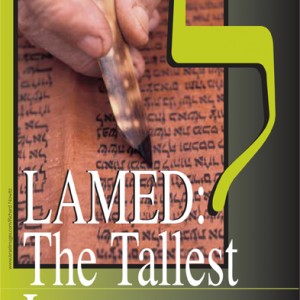
{image_1}
The largest letter in biblical Hebrew is the lamed. This letter is positioned at the very center of the aleph-bet (Hebrew alphabet), towering over all the other characters. It is the only letter that ascends above the top line. For this reason alone, it stands out and is instantly discernible in all texts. The lamed, therefore, has been the cause of much reflection by Israel’s sages through the millennia. Since God does nothing by happenstance, they reason, there must be significance in the fact that the lamed is so tall.
Continue Reading »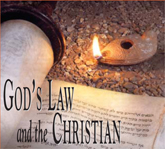
{image_1} One of the most misunderstood words in the entire Bible is the one we Christians translate as “law “or “the Law.” In Jewish terms, it is understood as Torah, or halachah, a Hebrew word whose root meaning is “walk” or “way.” Remember, Psalm 119:105-106 says, “Your Word is a lamp to my feet and a light for my path.
Continue Reading »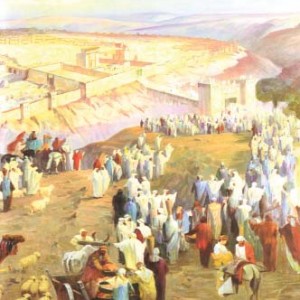
“Tithe” meant “tenth” both in Hebrew and Greek and was referenced two thousand years before Yeshua was crucified. Abraham brought tithes to Melchizedek before there was a Temple (Gen. 14).
Continue Reading »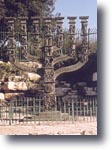
{image_1}
Often I invite guest authors to contribute to my Israel Teaching Letter series. This month I am excited to introduce Dr. John D. Garr, founder of Restoration Foundation and editor of Restore! magazine. Let’s see what Dr. Garr has to teach about the menorah:
Continue Reading »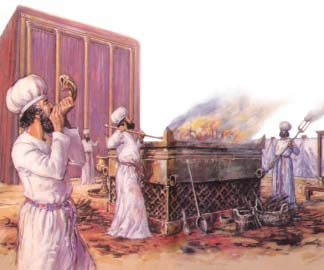
The Scriptures about the tabernacle and feasts of the Lord given to Israel are often considered tedious to read. Christians wrongly believe that these are things of the past and have little to do with Christianity. Of course, these passages reflect much about the nature and character of our eternal God, who is “the same yesterday, today, and forever.” All Scripture tells us something about God that, once learned, will help us to become better disciples of our Lord.
Continue Reading »
{image_1} “For the Lord your God is bringing you into a good land, a land of brooks of water, of fountains and springs, flowing forth in valleys and hills; a land of wheat and barley, of vines and fig trees and pomegranates, a land of olive oil and honey; a land where you shall eat food without scarcity, in which you shall not lack anything”
(Deut. 8:7-9).
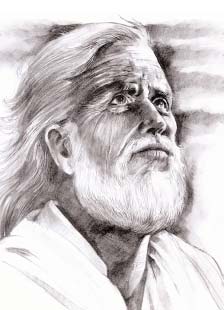
{image_1}
Consider Abraham: “He believed God, and it was credited to him as righteousness” (Galatians 3:6). Avraham Avinu (Our Father, Abraham) is terminology found frequently in Jewish and Rabbinic literature.1 It does not appear as such in the Tanach (Old Testament).
Continue Reading »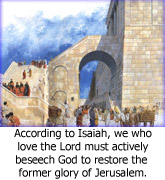
You who call upon the Lord, give yourselves no rest, and give Him no rest till He establishes Jerusalem and makes her the praise of the earth. Isaiah 62:6b,7
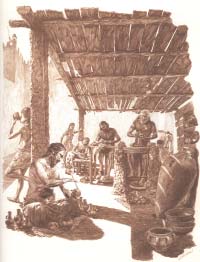
Early in the morning, a prophet made his way out of the Potsherd Gate of the city of Jerusalem heading to the house of Yonadav the potter. With quick pace he took the trail churned to fine dust by the hoofs of thousands of sheep and goats to where the Valley of Ben Hinnom and the Valley Kidron intersect. The two valleys cradle Jerusalem in their arms on the east and west, meet, and then head southeast carrying runoff water to the Dead Sea.
Continue Reading »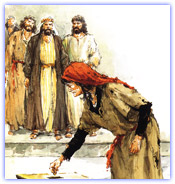
{image_1}
The worship of the Lord involves much more than going to a service where we sing some songs and hear the preaching of the Word. Worshipping God is a lifestyle that encompasses our whole being, day in and day out – what we say, what we do, and most importantly, how we do it. Yeshua (Jesus) addressed the issue of “how” we practice our faith in Matthew 6 where He discussed giving, prayer and fasting.
Continue Reading »All logos and trademarks in this site are property of their respective owner. All other materials are property of Bridges for Peace. Copyright © 2025.
Website Site Design by J-Town Internet Services Ltd. - Based in Jerusalem and Serving the World.